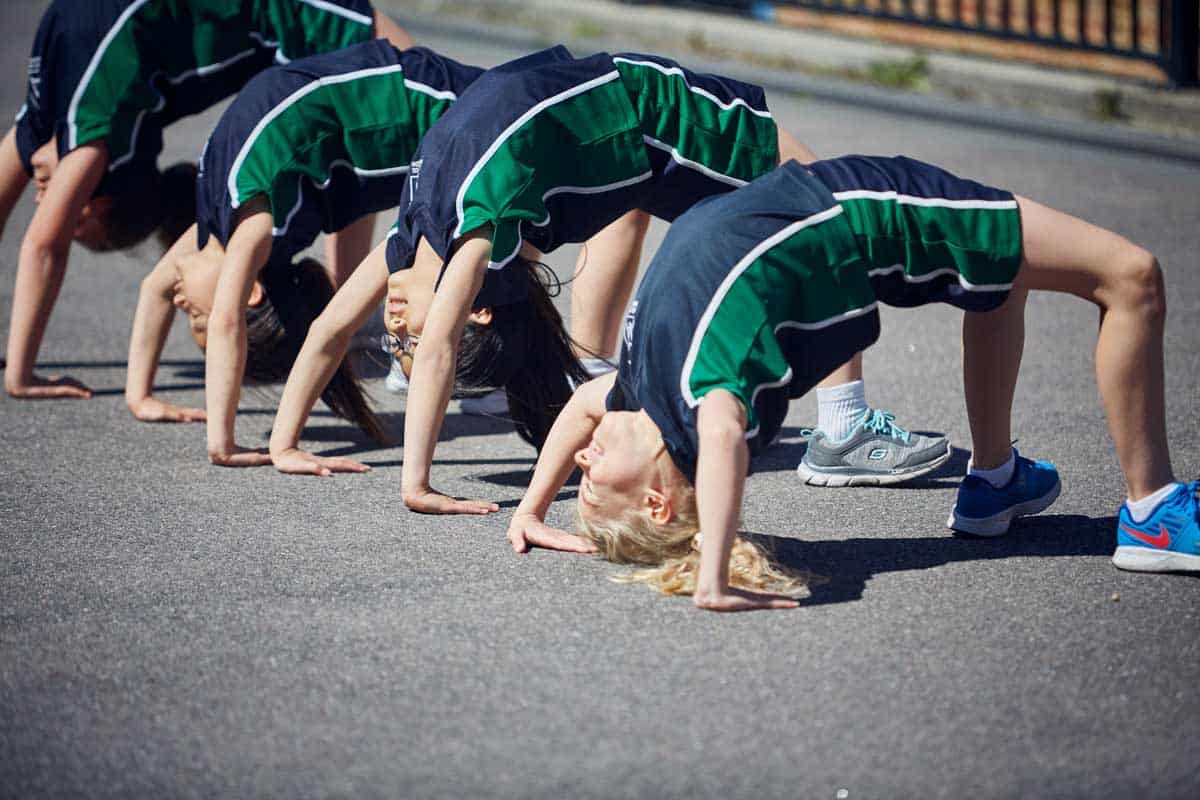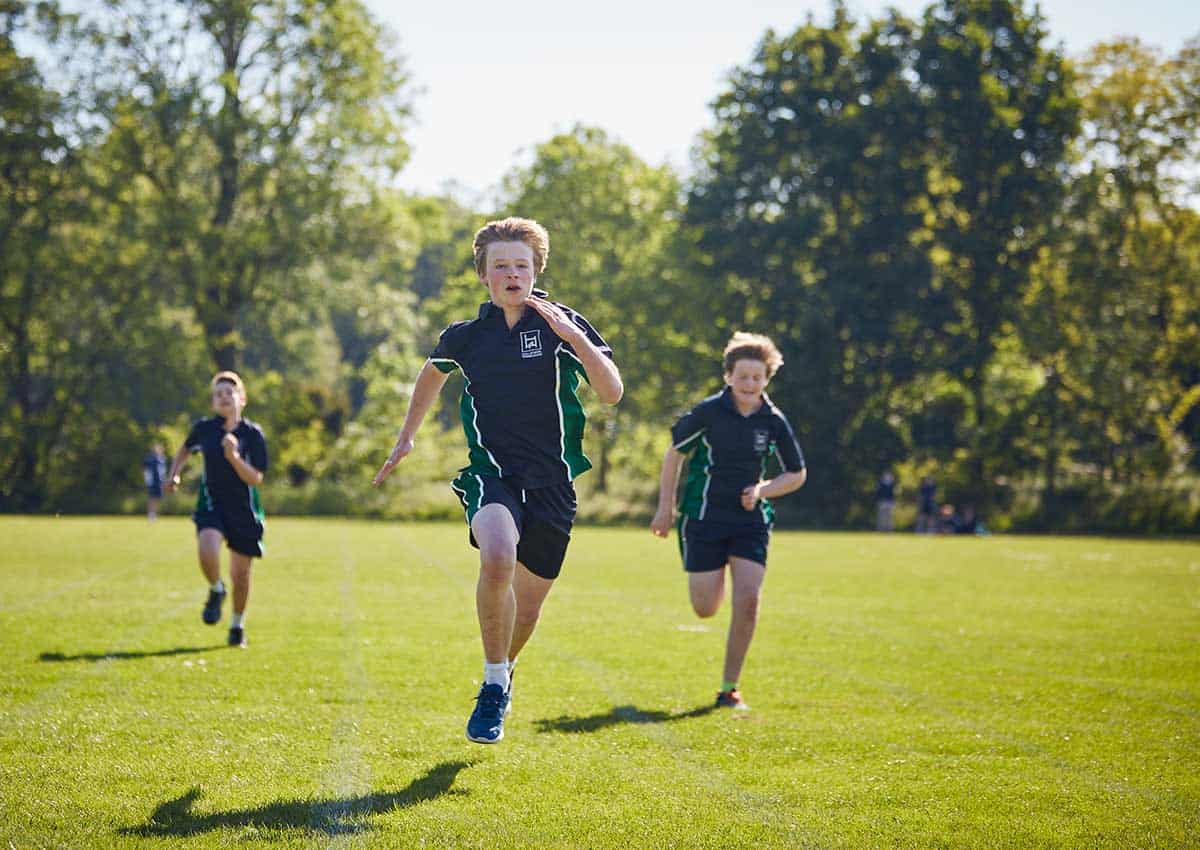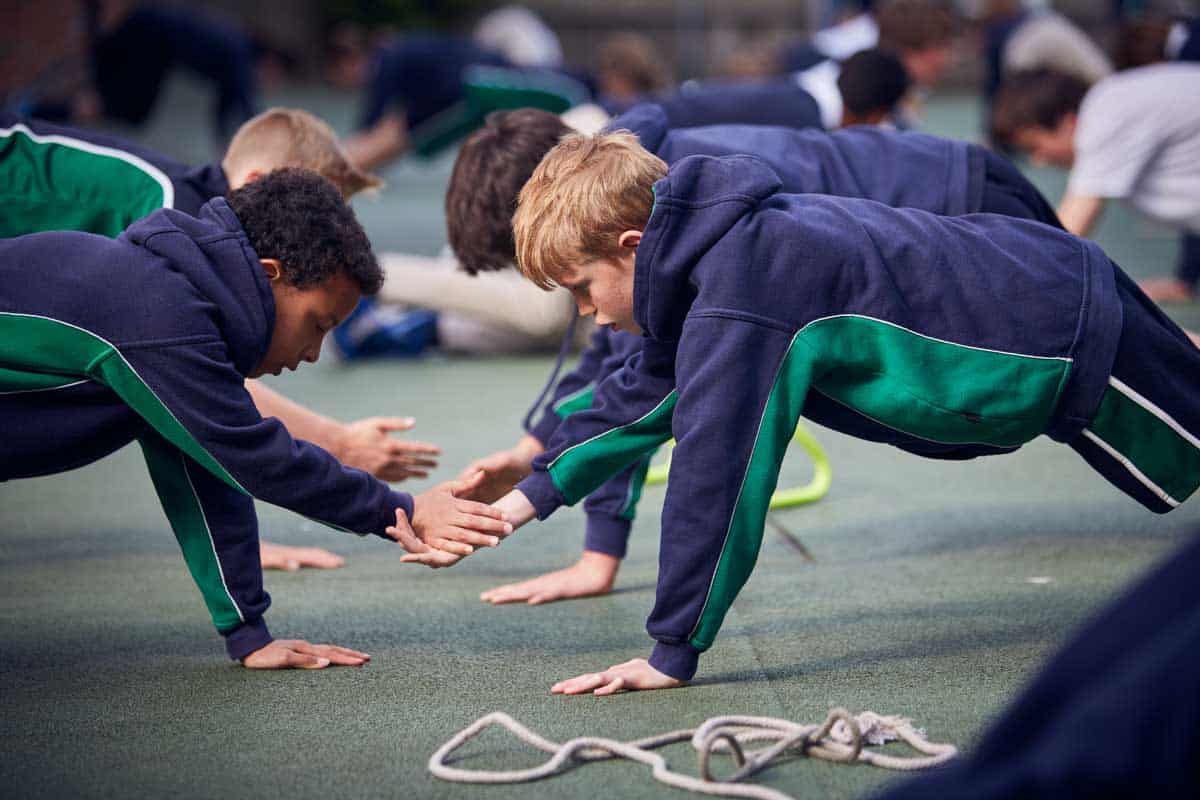Physical Education
Sport is a major part of life at Hall School Wimbledon and plays an essential role in the physical, emotional and social development of every girl and boy. We are justifiably proud of the facilities, support, expertise and talent provided by the Games and PE Departments.
The school seeks to develop the physical potential of every child through a varied and challenging curriculum. We compete in county, district and national tournaments as well as having weekly fixtures against local schools, such as Harrodian, Ibstock, Ursuline and Hill House among others.
HSW is one of the few schools to train Ball Boys and Ball Girls (BBGs) for the Wimbledon Tennis Championships each year.
All pupils take part in circuit training sessions before the start of the school day. The core objectives of these sessions are to increase muscle strength, endurance, flexibility and coordination. Pupils practice planks, rope skipping, jumping, squats, sprints and step ups. These movements are very important for the lower, upper and full body exercise.
Pupils also engage in a number of varied Games lessons throughout the academic year with equal emphasis being placed on team and individual sports. Years 3-9 have one double period and three single periods of Games each week. Years 10 and 11 have a double and a single period.
Sports on offer at HSW
Football
Netball
Cross Country
Rugby
Hockey
Basketball
Cricket
Athletics
Tennis
Volleyball
Badminton
Archery


The GCSE Physical Education course requires pupils to have a genuine interest in physical education and sport. We encourage each candidate to join a school sports team and to participate in two or three different physical activities/sports outside of school hours. The PE Department will specify the most appropriate sports course for individual pupils.
Process
Studying AQA GCSE (9-1) Physical Education will open pupils' eyes to the amazing world of sports performance. Not only will they have the chance to perform in three different sports through the non-exam assessment component, but they will also develop a wide-ranging knowledge into the how and why of physical activity and sport.
The combination of the physical performance and academic challenge provides an exciting opportunity for pupils. Pupils can perform, and then through academic study learn how to improve their performance through the application of theory.
How will pupils be assessed?
Non-Exam Assessment (NEA). Three practical performances (30%);
One analysis and evaluation task (10%);
A total of two and a half hours assessment split over two examination papers (2x 1 Hour 15 minutes) Taken at the end of the two-year course (60%).
Practical (30%)
Performance practical in three sports (1x Team, 1x Individual and 1x Free choice), equally weighted at 25 marks each. A list of the approved practical activities can be found on the AQA Website;
To improve practical grades pupils should aim to be regularly taking part in training, practising and playing competitively both within school and for local clubs;
Pupils should attend and meet members of the school sports teams to improve their practical grades.
Analysis and Evaluation Assessments (10%)
Analysing and evaluating performance – Research/analysis of your own or others performance in sport, identifying the strengths and weaknesses and implementing an action plan to improve the weakness - October/November Year 11
Exam Papers - Two exams in Year 11 (60%)
1 hour 15 minutes long and comprise of both theory units.

